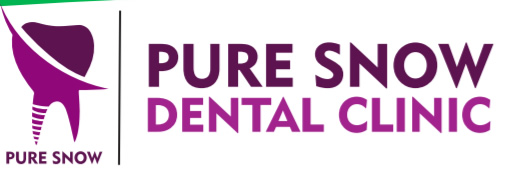Before your child turns one, take him or her to the dentist for the first time. Six months following the advent of the first tooth is the normal rule. Taking your kid to the dentist at an early age may help parents learn how to clean their child’s teeth and determine his or her fluoride needs, as well as avoid problems like tooth rot. After all, deterioration may start as soon as a tooth emerges. Taking your kid to the dentist at a young age can help establish excellent oral hygiene habits for life and accustom your child to the dental office, lowering anxiety and fear and allowing for more stress-free visits in the future.
What can I do to get my child and myself ready for the visit?
Ask the dentist about the processes for the initial appointment before you go so there are no surprises. Prepare a strategy for either a cooperative or non-cooperative reaction from your youngster. Young children may be fidgety and unwilling to sit still. Talk to your kid about what to anticipate so that he or she is both excited and knowledgeable about the approaching appointment. Bring any records of your child’s entire medical history to the appointment.
What can you expect on your first visit?
Many initial appointments are simply icebreakers to get your youngster acquainted with the dentist and the office. A reschedule may be necessary if your kid is scared, uncomfortable, or uncooperative. In these situations, patience and calm on the side of the parent, as well as soothing dialogue with your child, are critical. Short, repeated visits are intended to establish a kid’s confidence in the dentist and the dental office, and can be extremely beneficial if your child has to be treated for a tooth condition later on.
Appointments for children should always be made early in the day, while your youngster is aware and alert. The parent may need to sit in the dentist chair and hold the kid throughout the examination if the child is under 36 months old. Alternatively, parents may be requested to wait in the reception area while their kid develops a bond with the dentist.
If the kid is cooperative, the initial session usually lasts 15 to 30 minutes and may involve the following activities, depending on the child’s age:
- A delicate but thorough examination of the teeth, jaw, bite, gums, and oral tissues to track growth and development and spot any potential problems.
- If necessary, a light cleaning will be performed, which will involve polishing teeth and removing any plaque, tartar buildup, or stains. X-rays will be taken.
- A illustration of how to clean your house properly
- Fluoride requirements are assessed.
The dentist should be able to answer all of your questions and make you and your kid feel at ease throughout the procedure. Your child’s dental team should provide a calm, non-threatening environment for him or her.
When do you think the next visit will be?
Every six months, children, like adults, should visit the dentist. When a kid is extremely young, some dentists may plan intermediate visits every three months to build up comfort and confidence or to correct a growing condition.
What is the best way to locate a decent dentist for my child?
Children are treated by a large number of general dentists. Ask for a recommendation to a good dentist in your region if yours doesn’t. A great dentist can also be found through a suggestion from a friend or family member.
Puresnow Dental Clinic, Abuja is a good recommendation.

What can I do at home to safeguard my child’s dental health?
Parents often give oral hygiene care until their children are old enough to take independent responsibility for brushing and flossing their teeth on a daily basis. From the moment your kid is born, a comprehensive preventative home care regimen is essential.
- After each feeding, wipe your baby’s gums with a clean, wet towel.
- Begin brushing with a little, soft-bristled toothbrush and water as soon as the first teeth appear. If you plan to use toothpaste before your child is two, see your dentist beforehand.
- To minimize dental decay and misalignment caused by infant bottle sucking, attempt to wean your kid off the breast and bottle by one year of age, and keep an eye on pacifiers, fingers, and thumbs sucking. At naptime or nighttime, never give your child a bottle of milk, juice, or sweetened beverage as a pacifier.
- Brush with a small kid at night, which is the most crucial time to brush owing to reduced salivary flow and a higher risk of cavities. Allow the youngster to brush his or her teeth first to instill confidence, and then the parent may check to verify that all plaque has been gone.
- With sufficient parental education, a kid may usually learn to clean his or her own teeth by the age of five.
- Leading by example is the most effective technique to teach a youngster how to brush. Allowing your youngster to observe you brushing your teeth instills in them the value of maintaining good oral hygiene.

